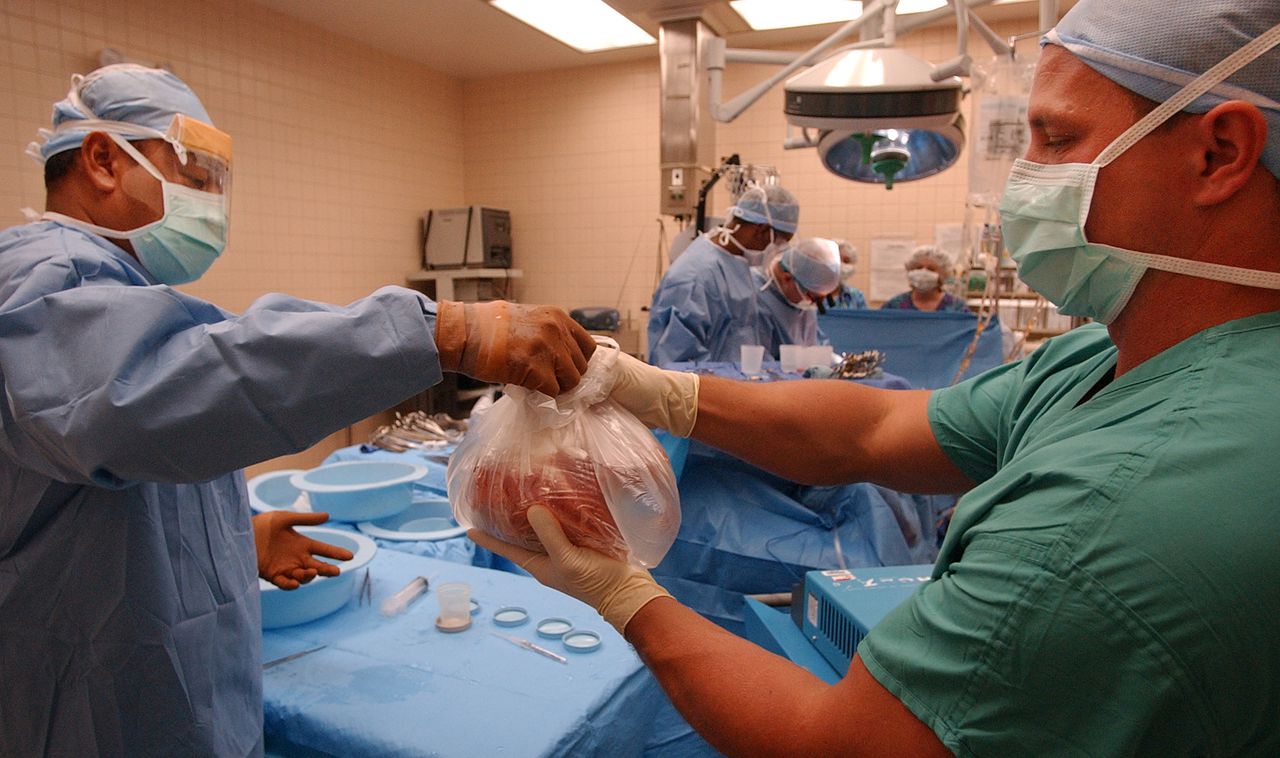Guest opinion: We can expand transplant testing program across the nation
This is a guest opinion column
Dorothea Staursky saw a social media post more than five years ago about a little boy who needed a bone marrow transplant but couldn’t find a matching donor. A healthcare professional in Birmingham, Ala., Dorothea was deeply moved. She imagined herself or a family member waiting and hoping for a life-saving donation that might never come.
Inspired to help, Dorothea signed up for the national registry of donors. Just months later, she got the call that she was the best possible match for a person she never met. Dorothea became a transplant donor and continues to answer the call as an advocate for the National Marrow Donor Program (NMDP), hosting donor registration drives in Alabama and elsewhere. This week, Dorothea will visit Washington D.C., where she will ask Congress for a modest increase in funding to improve access to bone marrow transplants, particularly in rural and other underserved communities.
Dorothea was invited to share her personal journey with lawmakers on the House Appropriations Subcommittee on Labor, Health and Human Services, Education and Related Agencies. One of Alabama’s U.S. House members, Rep. Robert Aderholt of Haleyville, chairs this committee, and we are grateful for his ongoing support for our life-saving mission.
For patients diagnosed with leukemia, lymphoma, sickle cell disease and other life-threatening diseases, a bone marrow transplant may be their best or only hope for a cure. Yet 70% of patients who need a transplant do not have a fully matched donor in their family. For nearly four decades, Congress has authorized and funded the national marrow registry through the C.W. Bill Young Cell Transplantation Program, while entrusting NMDP to oversee the registry and increase patient access to transplants. This successful public-private partnership has facilitated more than 120,000 transplants between unrelated volunteer donors and patients with a blood cancer or disorder.
But we are always striving to do even more — to break down barriers to save more lives.
A $2 million funding increase for NMDP will help improve access for underserved patients, with a key focus on those in those underserved communities in Alabama and across the country.
People who live in rural areas often must travel to another city to undergo transplant. Additional funding will help support patient assistance grants to help families with out-of-pocket expenses. Many families find that their insurance doesn’t cover all the costs associated with transplant. In Alabama, we have provided 200 patients, including 58 children, with more than $500,000 in assistance to help cover costs.
An increase in Congressional support will also help us expand HLA Today, a program that improves transplant access in underserved communities. HLA Today – (HLA is short for Human leukocytic antigen) provides free test kits to community doctors so they can immediately test patients to see if a family member or unrelated adult donor on the Registry matches a patient. Testing and typing at the point of diagnosis can aid in faster treatment decisions that can save a patient’s life. In fact, early typing and testing and early donor identification and referrals, are associated with a 37 percent increase in the 2-year overall survival for patients who received a transplant.
Alabama in 2019 was the first state in the nation to launch HLA Today, thanks to the Mitchell Cancer Institute at University of South Alabama in Mobile. Since then, the program has reached 29 states and Puerto Rico. With increased federal support, we can continue to expand HLA Today across the country.
When Dorothea speaks to members of Congress this week, she will be speaking from the heart about her experience as a donor and how increased funding for NMDP will help underserved populations throughout the nation. Because of our longtime partnership with Congress and the generosity of more than 41 million potential donors, NMDP has helped give tens of thousands of patients a second chance at life. With additional support, we can help more donors and patients make life-saving connections, even in places far from the bright lights and big cities.
Amy Ronneberg is chief executive officer of National Marrow Donor Program (NMDP)/Be The Match.
